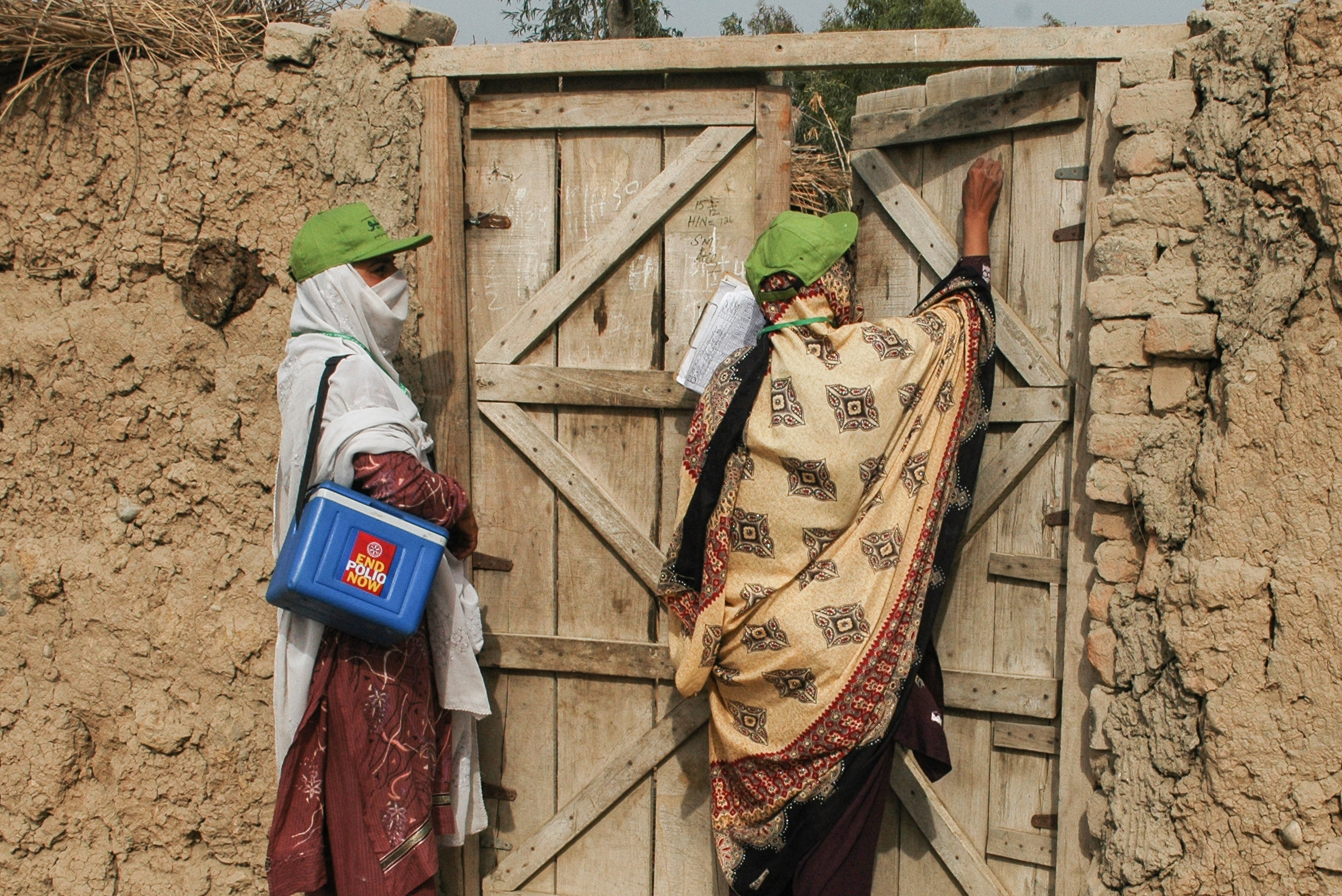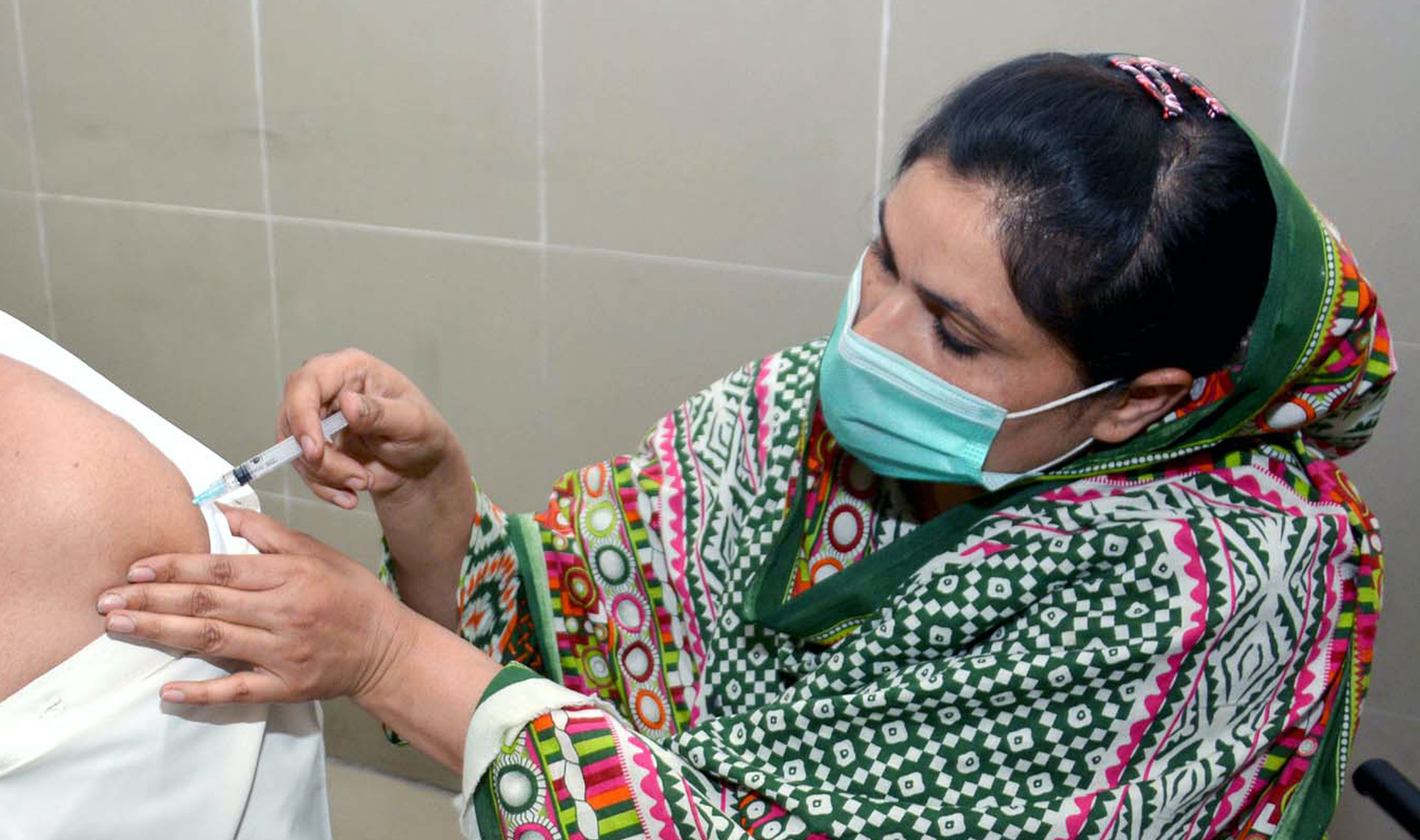
For decades, public health has looked to polio eradication as the next great success story in disease elimination. Today, the virus can still be found in Afghanistan and Pakistan, the last two countries where it's endemic. In Pakistan, polio eradication has faced myriad issues ranging from misinformation and religious barriers to poor vaccine delivery logistics.
With COVID-19 causing nearly a lapse of 80 million child vaccinations, it's now more important than ever for the restarted polio vaccination program to succeed. This work largely hinges on the efforts of women vaccinators in conservative communities. In northwest Pakistan, some groups have stymied eradication efforts through religious opposition and discrimination against Lady Health Workers, the government-run health program led by women, delivering vaccinations.
Manish Sreevatsava looks at how women vaccinators at the heart of Pakistan's anti-polio campaign are able to carry out the program during COVID-19 and overcome issues of gender discrimination and religious opposition that have been omnipresent in their work. Ultimately, Pakistan's Lady Health Worker model can and should be replicated across the world as countries continue the fight against COVID-19.





